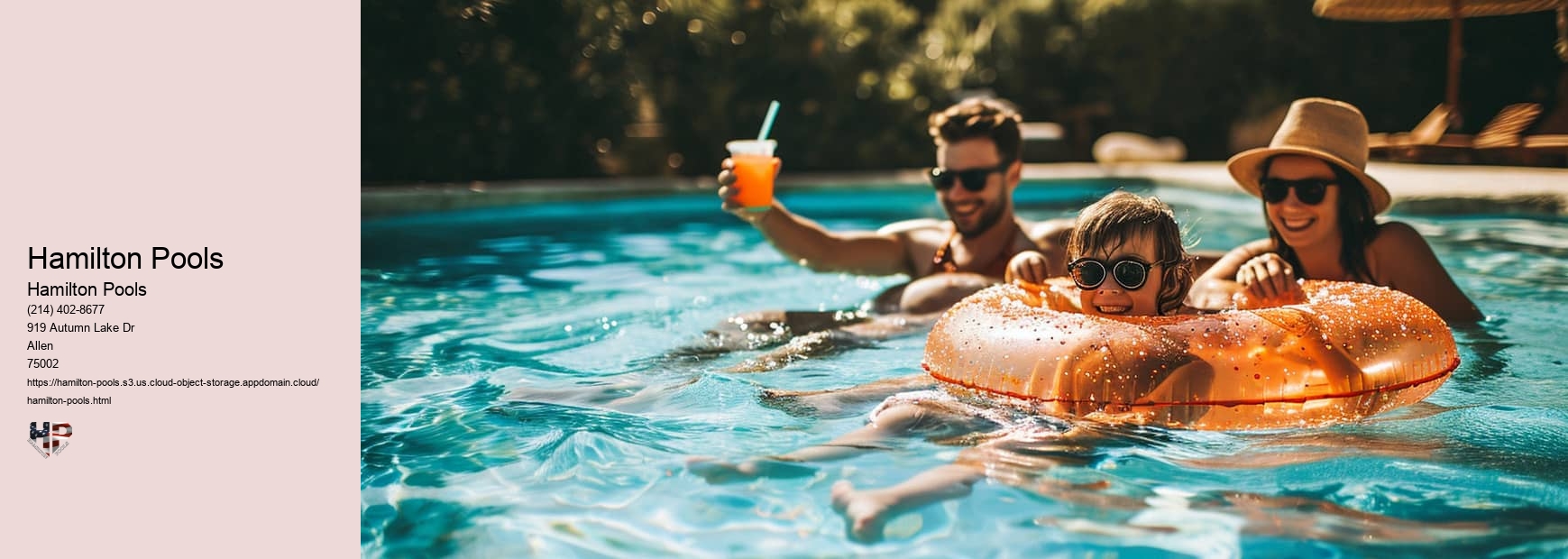
Located in Texas, we understand the unique challenges that pools in this region face. Our expertise in Texas pool care services allows us to address specific issues related to the climate and water conditions, ensuring that your pool remains in optimal condition all year round.
Choose Hamilton Pools for all your pool cleaning and repair needs, and experience the peace of mind that comes with our comprehensive warranties. Contact us today to schedule an appointment and let us take care of your pool with the professionalism and expertise that sets us apart.
Proper pool cleaning involves a combination of tasks, including skimming, vacuuming, and backwashing. Skimming the surface of the water removes leaves, insects, and other debris, preventing them from sinking to the bottom and causing water contamination. Vacuuming removes sediment and particles that have settled on the pool floor, keeping the water clear and preventing the growth of algae.
Hamilton PoolsNo! Muriatic acid is a powerful acid and requires careful handling. Adding it without testing and adjusting pH first can damage your pool and irritate swimmers. Always dilute and add acid slowly while monitoring pH levels.
FS most likely stands for 'freestyle' or 'front crawl', the most common swimming stroke worldwide. It can also denote 'freestyle swimming' as an event category.
Absolutely! Run the pool pump for at least 24 hours after shocking to circulate the chlorinated water and ensure thorough sanitization. Proper circulation maximizes shock effectiveness and distributes the chemicals evenly throughout the pool!
Skim daily and brush and vacuum at least once a week during swimming season. Test water chemistry weekly and adjust as needed. More frequent cleaning might be necessary for heavily used pools or hot weather.
Swimming in a dirty pool can be unhealthy and unpleasant. Algae and bacteria can cause skin irritation, eye infections, and respiratory problems. Dirty water can also harbor parasites and other harmful organisms. It's always best to swim in a clean and properly maintained pool!
Shock (high dose chlorine) kills existing algae and bacteria, but shouldn't replace regular chlorine usage. Shock is a temporary treatment, while chlorine provides ongoing sanitation. Maintain consistent chlorine levels for continuous protection!